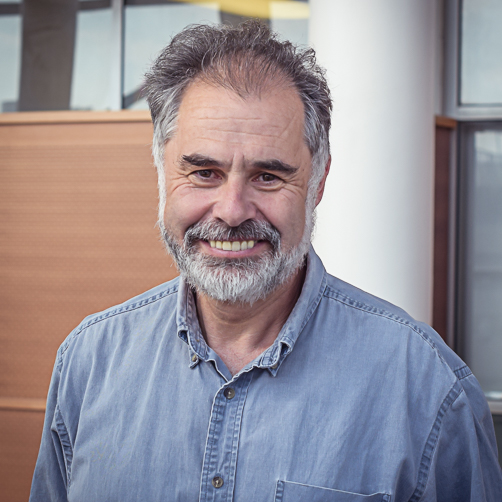Vladimir Yan Chernyak (av3651)
University information
Contact information
College of Liberal Arts and Sciences
Chem 361
Physical Theoretical/Computational Chemistry
Methods of non-equilibrium statistical mechanics provide a unified view of problems arising in various apparently remote areas. This allows transferring physical intuition across interdisciplinary boundaries and approaching the problems in non-traditional ways. Our theoretical and computational efforts focus on studying molecular structure and dynamics in the condensed phase, nanoscale, and single molecule systems, relaxation in driven systems and its signature in ultrafast spectroscopy, as well as information theory.
(i) Nonadiabatic effects that play an important role in photoinduced dynamics and excited state relaxation of molecules in condensed phase are intrinsically quantum and may not be treated using classical MD simulations. Fully quantum treatment is numerically expensive. We develop efficient semiclassical methods for nonadiabatic molecular dynamics. This includes conformational changes that involve conical intersections of potential energy surfaces.
(ii) Non-equilibrium stochastic dynamics of driven single-molecule systems, such as molecular bio-motors, is complex due to a large number of slow modes involved. We develop characterization methods for efficiency and functionality of molecular bio-motors and similar systems. These methods are based on the concept of entropy production recently introduced in the literature.
(iii) Excited state electronic structure of branched conjugated molecules (e.g. dendrimers) that plays an important role in electro-optical and photochemical applications is complex due to large size and complicated connectivity. We develop an intuitive, yet quantitatively accurate description based on quasi-particle (exciton) representation of optical excitations and exciton scattering.
(iv) We study electronic and vibrational coherence dynamics in the condensed phase with emphasis on the spectroscopic signatures of the complex interplay of quantum effects and classical chaos in the bath dynamics.
(v) We develop new approaches in the Time-Dependent Density Functional Theory capable of treating electronic structure of conjugated molecules with degenerate electronic ground state. Applications include excited state molecular dynamics with the emphasis on ultrafast photo-isomerization and slow energy relaxation.
(vi) We apply methods of extreme statistics such as optimal fluctuation (instanton calculus) to evaluating the performance of error-correcting codes and telecommunication channels. Recently developed by us gauge-invariant loop calculus is applied to theory of algorithms, including improving the efficiency of information transmission.
- Wu, C.; Malinin, S.V.; Tretiak, S.; Chernyak, V.Y. "Exciton Scattering and Localization in Branched Dendrimeric Structures", Nature Phys. 2, 631 (2006)
- Chertkov, M.; Chernyak, V.Y. "Loop Calculus in Statistical Physics and Information Science", Phys. Rev. E. (Rapid Communications) 73, 065102(R) (2006)
- Chernyak, V.; Chertkov, M.; Jarzynski, C. "Dynamical Generalization of Nonequilibrium Work Relation", J. Stat. Mech. P08001 (2006)
- Stepanov, M.G.; Chernyak, V.; Chertkov, M.; Vasic, B. "Diagnosis of Weaknesses in Modern Error Correction Codes: A Physics Approach", Phys. Rev. Lett., 95, 228701 (2005)
- Piryatinski, A.; Stepanov, M.; Tretiak, S.; Chernyak, V. "Semiclassical Scattering on Conical Intersections", Phys. Rev. Lett., 95, 223001 (2005)
- Tretiak, S.; Igumenschev, K.; Chernyak, V. "Exciton Sizes of Conducting Polymers Predicted by Time-Dependent Density Functional Theory", Phys. Rev. B 71, 033201 (2005)
- Chernyak, V.; Mukamel, S. "Effects of Quantum Collapse on the Distribution of Work in Driven Single Molecules", Phys. Rev. Lett. 93, 048302 (2004)

Courses taught by Vladimir Yan Chernyak
Fall Term 2025 (future)
Winter Term 2025 (current)
Fall Term 2024
Winter Term 2024
- CHM5400 - Biological Physical Chemistry
- CHM6410 - Statistical Thermodynamics
- CHM7410 - Statistical Thermodynamics